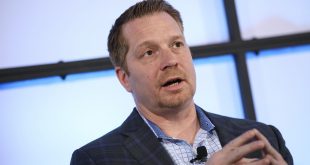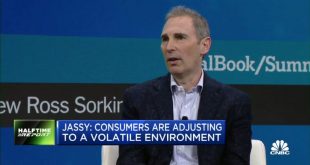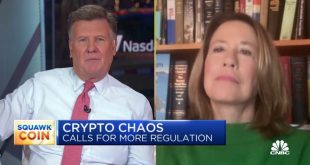
Justin Sullivan | Getty Images
Facebook CEO Mark Zuckerberg delivers the keynote address at Facebook’s F8 Developer Conference on April 18, 2017 at McEnery Convention Center in San Jose, California. The conference will explore Facebook’s new technology initiatives and products.
Facebook said on Wednesday its efforts to fight fake news during Germany’s national elections included taking down tens of thousands of fake profiles in the final month of the campaign.
Richard Allan, Facebook’s vice president of public policy for Europe, Middle East Africa, said the Silicon Valley-based company mounted an array of efforts to ensure the social media network was not used as a platform to manipulate public opinion.
“These actions did not eliminate misinformation entirely in this election but they did make it harder to spread, and less likely to appear in people’s News Feeds,” the Facebook executive said in a statement. News feed is the central feature in user profiles whereby they can see updates from people they follow.
Chancellor Angela Merkel’s Christian Democratic Union secured victory in Sunday’s balloting with fewer votes than expected, forcing her to enter complicated coalition talks with various parties to form a new government.
The company said it made a stronger push to remove fake accounts when it observed suspicious activity following widely reported foreign interference in the French and U.S. presidential elections over the past year.
Besides seeking to encourage civic participation and voter education efforts, it also worked closely with authorities, including the Federal Office for Information Security (BSI), to monitor security threats during the campaign.
“Studies concluded that the level of false news was low,” concluded Allan, a former British member of parliament who, in addition to his work for Facebook, has been a member of the House of Lords since 2010.
A variety of German political experts and social media watchers had given the campaign largely a clean bill of health in terms of any wide-scale efforts to swing votes in the run-up to voting day.
 EU News Digest Latest News & Updates
EU News Digest Latest News & Updates



